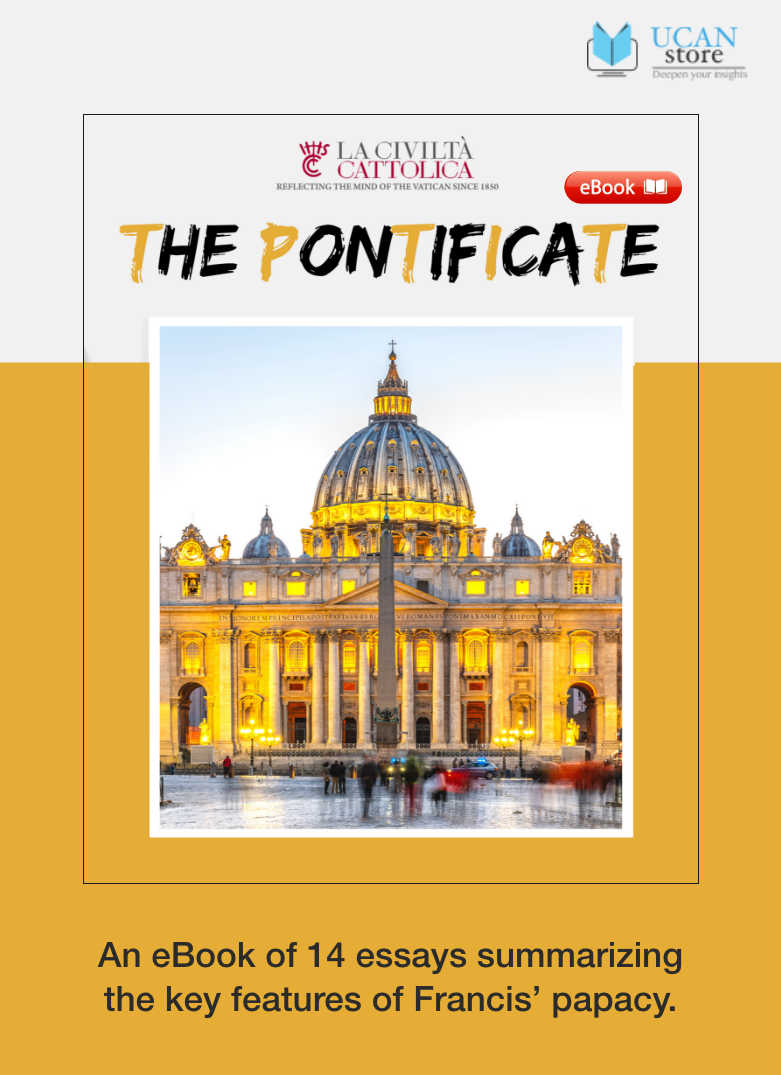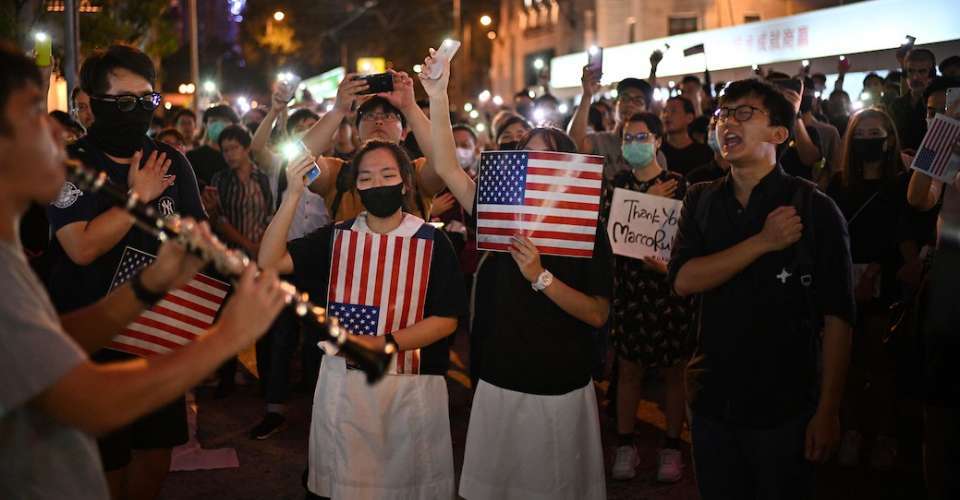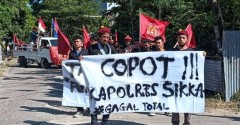
NEWSLETTERS
What’s happening in Asian Church
and what does it mean for the
rest of the world?
Updated: May 10, 2024 12:13 PM GMT

The Chinese Communist Party (CCP) regime in Beijing is insecure and paranoid, and its henchmen in Hong Kong are even more so. Their insecurity becomes ever more apparent by the day. They are scared of their own shadows.
They aren’t simply scared of protests, opposition, or dissent. They’re not only petrified of a free press or an independent judiciary. No.
They’re terrified of books. They’re frightened of T-shirts and what colors or slogans might be on them. Ideas and thoughts that are not consistent with Xi Jinping’s freak them out. And they’re paranoid about songs.
That’s why earlier this week a court outlawed the pro-democracy anthem, Glory to Hong Kong – an inspiring song that conveys the hopes, ambitions, determination and persistence of Hong Kongers who desire freedom.
Only last Saturday, I had the privilege of introducing a concert in London by Hong Kong pianist Ricker Choi and cellist David Wong, in support of Hong Kong Watch, which ended with a rousing rendition of Glory to Hong Kong. Just listen to the audience's passion in this finale sing-along – it was profoundly moving.
But four days later, a Hong Kong court effectively ruled that every other rendition of the song was a crime.
The court said that the song could be used as a weapon. Well, as my friends and family might tell you, that is true if I sing it – such is the appalling nature of my singing, it could well be deemed an assault on the ears.
But if a talented, professional violinist such as my sister, violinist Ruth Rogers, and pianist Viv McLean, perform it, as they did two years ago at Hong Kong Watch’s annual dinner, or indeed Ricker Choi or any other competent musician plays it in public, it is a boost to the spirit, not a weapon of war. Just listen to any and every version currently available on YouTube.
The CCP regime in Beijing has always been insecure and paranoid. Ever since its inception, it has been nervous about anything that might threaten its grip on power. It has long been terrified even of books, clothing and songs.
In The Tragedy of Liberation – the first of his trilogy on Mao Zedong’s reign of terror – historian Frank Dikötter notes that “records of Beethoven, Chopin, Schubert, Mozart and other foreign composers seen as bourgeois were quietly put away.”
Before the Communists took over China, Shanghai was considered “the music capital of Asia,” but within weeks of the Communist revolution, jazz was banned and music outlets shuttered.
Of course, in China today, music isn’t banned, and Western performances are permitted, albeit controlled. But they are censored.
In Hong Kong, Cultural Revolution-style scrutiny is now exerted to ensure that any music that might inspire feelings of protest is eliminated before it hits the listener.
The crackdown on Glory To Hong Kong within Hong Kong is one thing. It’s wrong, it’s bad, and we should protest. The international community must call it out.
However, of greater consequence is the hinted appeal by Hong Kong’s CCP-influenced courts that the song should be banned worldwide. That cannot – and must not – be tolerated.
The tech giants – Google, YouTube, Facebook, X, Instagram, and the like – will face real ethical dilemmas regarding what they do in Hong Kong.
But outside Hong Kong, they must resist with utmost determination any effort by the CCP and its thugs in Hong Kong to take down videos of Glory To Hong Kong.
The day we start allowing China to censor the Internet around the rest of the world is the day we surrender our freedoms – and that’s a day I will do my utmost to prevent. We cannot let Beijing stop those of us outside Hong Kong from singing Glory to Hong Kong on behalf of those no longer able to sing it.
My answer to bullies is always to stand up to them.
I say to the CCP and their Hong Kong goons: the more you want to ban Glory to Hong Kong, the more we should sing it.
Let us sing the protest anthem everywhere, with everyone, at every opportunity, all the time.
Those of us who have a voice, however badly we might sing, must use our voice to sing – and speak – for Hong Kong and for those who can no longer speak. For as long as necessary.
Please let us not lose our voice.
*The views expressed in this article are those of the author and do not necessarily reflect the official editorial position of UCA News.
















